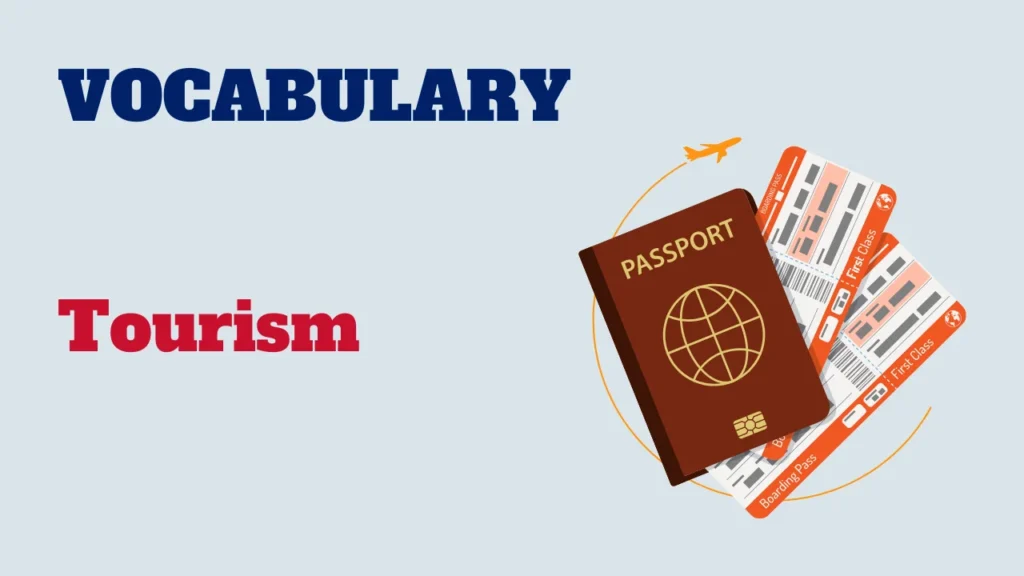Welcome to a linguistic exploration of the vibrant realm of tourism vocabulary. In our globalized world, travel has become an integral part of our lives, offering avenues for exploration, cultural immersion, and shared experiences.

Join us as we unravel a spectrum of terms that will not only help you navigate the intricacies of travel but also deepen your appreciation for the rich tapestry of cultures that make each destination unique.
Tourism vocabulary:
- Tourism: The activity of traveling for pleasure, often involving the exploration of new places and cultures.
- Tourist: A person who travels for pleasure, typically to destinations away from their usual place of residence.
- Destination: The place to which someone is going or something is being sent; a popular location for travel or tourism.
- Itinerary: A planned route or journey, including details of places to visit and activities to undertake during a trip.
- Accommodation: A place where people live or stay, especially on a temporary basis; lodgings or hotels.
- Resort: A place frequented for vacations or recreation, often featuring amenities such as hotels, restaurants, and entertainment.
- Attraction: A place or feature that draws visitors, often due to its historical, cultural, or natural significance.
- Sightseeing: The activity of visiting places of interest and viewing notable landmarks.
- Guidebook: A book that provides information about a place, including details on attractions, accommodations, and local customs.
- Adventure Tourism: Traveling to remote or exotic locations to engage in physically challenging activities and experiences.
- Cruise: A journey on a ship for pleasure, especially one that involves visiting a series of different places.
- Souvenir: A keepsake or memento purchased as a reminder of a trip or experience.
- Local Cuisine: The traditional food and dishes of a particular region or country.
- Passport: An official document issued by a government, certifying the holder’s identity and citizenship and granting them the right to travel.
- Budget Travel: Traveling on a limited budget, often seeking economical accommodations and transportation options.
- Travel Agency: A business that provides services related to travel, including booking flights, accommodations, and tours.
- Visa: An official authorization allowing someone to enter a country, typically for a specified period and purpose.
- Hiking: Walking for long distances, especially across a country or in natural environments, often as a recreational activity.
- Culture Shock: The feeling of disorientation and discomfort when experiencing an unfamiliar way of life or set of cultural norms.
Concluding our journey through the lexicon of tourism, it is evident that these words not only facilitate the planning of adventures but also enable engaging discussions about the transformative power of travel. Armed with this vocabulary, you hold more than just the keys to a well-planned itinerary; you possess the language to articulate the profound impact of tourism on our understanding of cultures and the world. Bon voyage on your continued linguistic expedition!



